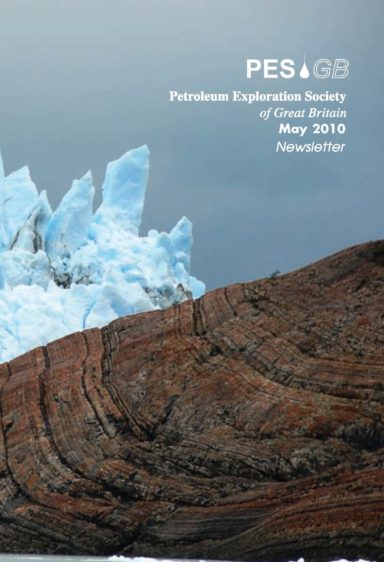PESGB May 2010
- PESGB Young Professionals
- Climate Change
- Petroleum Geoscience
- Book Reviews
- Middle East
Plus much more inside
Editorial
Questions have been asked recently about editorial policy in, and the editorial process of, the newsletter. Although there is no explicit editorial policy, the newsletter is produced for the benefit of the members of the Society, and PESGB will not publish material which would damage either the good standing of the Society or the members of the Society.
The Newsletter Director’s role is to interpret these guidelines. This is an unpaid elected office. The use of the term “elected” might be a stretch, as there is rarely more than one candidate for the post. The term “unpaid” is unambiguously correct, as it always been the case that all officers of the Society, including of the Society’s business ventures such as PETEX, are unpaid volunteers, in the manner of gentleman/gentlewomen sportspersons (once known as “players”) of a bygone era.
The Newsletter, as in other journals, includes opinion pieces without prejudice to the publication’s own independence or neutrality. Elected volunteers on Council retain their rights to holding or expressing opinions. This includes the President and, at times, Newsletter Director. Indeed, the President’s Page has long been used by incumbents to expound their personal views and perspectives.
PESGB as an organisation has not taken or promoted a Society position on issues. For example, in the matter of the location of the core store recently, the Society took soundings of members’ opinions, and reported those in the newsletter, but the statistics were prefaced with notes explaining that they were being reported as the views of the voting subset of the membership, not the view of the Society.
Looking ahead, should that necessarily always be the case, as geoscience and the petroleum industry moves even more in to the centre stage? For example, for several years the AAPG actively and openly sought to influence opinion amongst legislators in the USA on the matter of climate change; although the view they were promoting was diametrically opposed to those of many AAPG members, they did not feel the need to resign from that society. But would PESGB taking ‘positions’ overstep the bounds as envisaged by the members?


